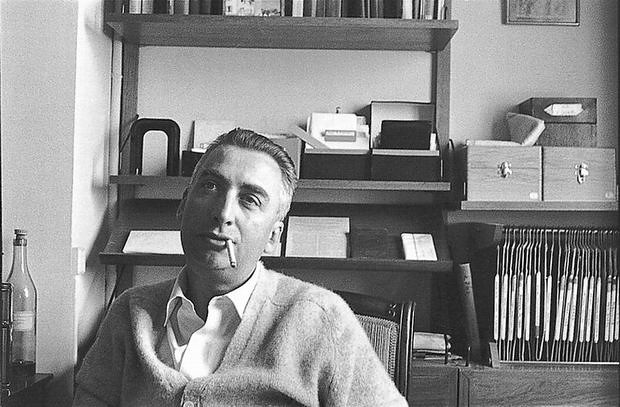The French structuralist writer Roland Barthes wrote a short essay called “The Death of the Author” in 1967. In it, he argues that writing is the destruction of every voice, and that while this has not been recognized before, writers are now starting to take this into account and critics should focus on the reader rather than the author.
Writing removes the author’s voice and makes it neutral. When a fact is narrated no longer in reality but with an intransitive view, outside any purpose except a symbol, the author dies, and writing begins. But this phenomenon has varied: in ethnographic societies a mediator or shaman narrates an already-made story, and he is not regarded as the creator of the narrative. But the author is modern, coming from the veneration of the individual originating with English empiricism, French rationalism, and the Reformation’s personal faith. It follows that in positivism, the final iteration of capitalist ideology, the author should be the most important figure. Literature’s popular image tends to focus on the author and his personality, life, and interests. For example, “Baudelaire’s work is the failure of Baudelaire the man, Van Gogh’s his madness, Tchaikovsky’s his vice” (Barthes 143). The explanation of a work is sought in the author, and it is the end which is communicated to us through the allegory of fiction.
However, Barthes mentions some authors who have tried to make the author less prominent. Through impersonality, Mallarme made language speak and perform for itself, not the author. Valery also questioned the author and put the linguistic nature of his work front and center. In his prose he centered the verbality of literature, and to him focusing on the author seemed like total superstition. Proust subtly blurred the link between the writer and hip characters and made the narrator one who will write, creating a modern epic. He also modeled his life on his work rather than vice versa. Finally, Surrealism contributed to the displacing of the author by advocating the straight disappointment of meaningful expectations in having the hand write as fast as possible what the head itself is incognizant of in automatic writing and having many different people write together. “Language knows a ‘subject’, not a ‘person’, and this subject, empty outside of the very enunciation which defines it, suffices to make language ‘hold together’, suffices, that is to say, to exhaust it” (Barthes 145). The author’s removal completely transforms the modern text. Originally, the author is though of as preceding his book, and it is his child. On the other hand, the modern scriptor is born at the same time as the text and exists nowhere but in its present. Writing no longer depicts, but instead has taken a form where there is no other content but the act that expresses it, like the spoken declarations of kings, or the singing of ancient poets. The scriptor’s hand is outside any voice and purely writes without origin.
A text does not create one single meaning but is instead a multi-dimensional space where many different, unoriginal writings mix and collide. From many centers of culture, the text is created. The writer has a dictionary from which he draws writings, but he never focuses on any one of them. Thomas Quincey was one such person who had gathered a massive dictionary of words beyond purely literary topics, so that he could translate modern ideas into the language of Greek that he was a master of. All life does is imitate books. When the author is taken out, it is pointless to try to decipher a text. “To give a text an Author is to impose a limit on that text, to furnish it with a final signified, to close the writing” (Barthes 147). This type of text allows criticism to uncover the author, or its hypostases: society, history, psychology, and liberty, that inspired the text. But now, everything in writing is to be untangled rather than deciphered, and there is nothing below the structure. By not placing meaning to a text, literature frees an anti-theological activity, rejecting God and his hypostases – reason, science, and law. Research has shown that Greek tragedy is ambiguous, using words with double meanings that are one-sidedly understood by characters, but there is a person who understand the words and their fraudulence, and can understand the deafness of the characters: the reader. He is the space in which all the many writings, from many cultures are linked together in the single text. He does not have history, biography, or psychology, but exists in the present where he brings together the many writings of the text into his experience.
Barthes concludes by arguing that classic criticism has ignored the reader for the author. But writing has always neutralized the voice of the author. Now there is beginning to be more of a focus on the reader, and that this has brought about the death of the author.
Works Cited
Barthes, Roland. “The Death of the Author.” Image Music Text. Translated by Stephen Heath, London: FontanaPress, 1977.

Leave a comment